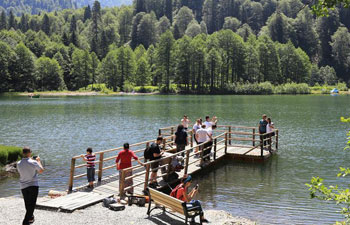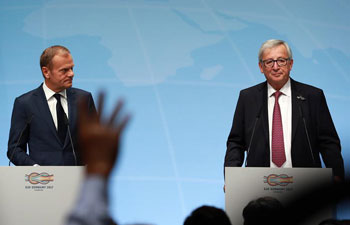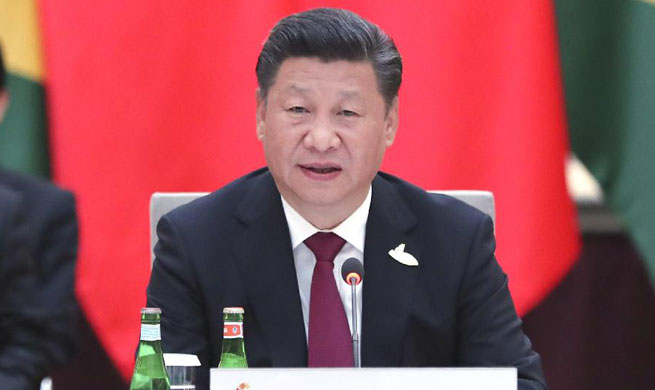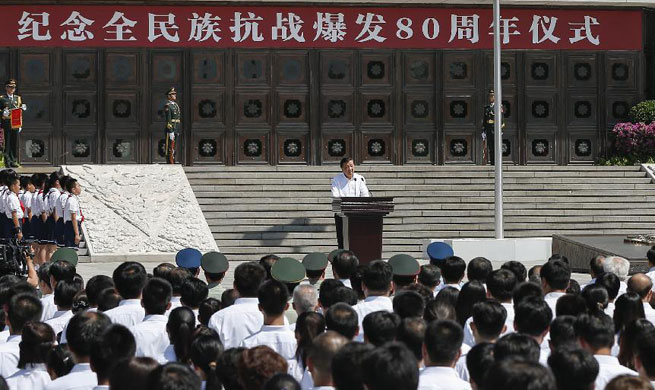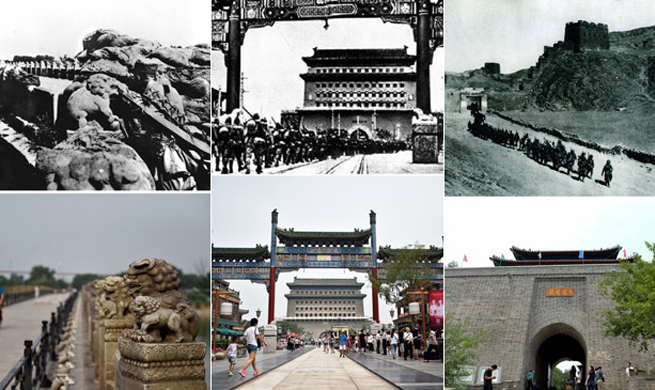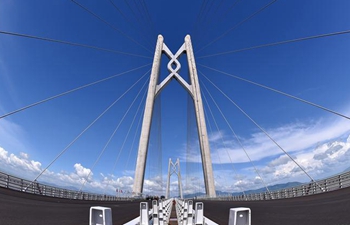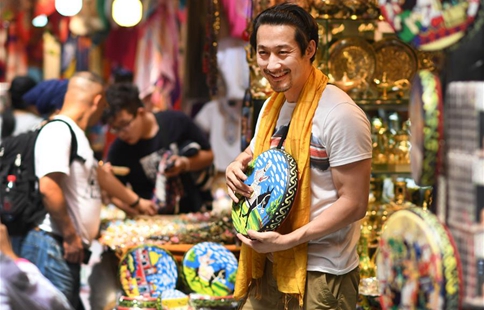NAIROBI, July 7 (Xinhua) -- South Sudan said on Friday at least two youth leaders have been arrested over the latest wave of ethnic hatred after they wrote letters ordering the UN and humanitarian agencies to expel all Equatorians working in the northern Jonglei state.
Deputy Minister of Information Paul Akol Kordit told Xinhua in Juba that they were very concerned and condemned the actions of the Bor Youth Community (BCY) which on July 4 authored an ethnically charged letter to the UN demanding expulsion of all its workers from the Equatoria region based on unconfirmed reports of the latter killing members of the Dinka tribe in Equatoria.
"We are very much concerned. We condemn these (Bor) youth, they are inciting ethnic division within the nation," Akol said.
The Equatorian community youth also angrily responded to the letter on July 6 by calling upon their members to unite and expel all Dinkas from the region which prompted government to act quickly to contain the simmering tension.
"The government of Jonglei has already arrested those youth who authored the letters," he added.
Since the outbreak of conflict in December 2013, and the renewed July clash last year have threatened to derail the harmony that existed long among various ethnic communities.
"This country was liberated by all South Sudanese together. There is no single ethnicity that fought and liberated South Sudan alone," Akol added.
In November last year, the UN Special Advisor on Prevention of Genocide Adama Dieng warned of the likeliness of ethnic hatred and killings increasing that could lead to genocide but experts ruled out genocide occurring since no leaders have organized such systemic killings along ethnicity.
Jacob Dut Chol, political Science don at Juba University said the youth of Jonglei deserve condemnation because other ethnic groups could eventually take it up and act in similar manner.
"There is need for government to sensitize South Sudanese to love themselves and accommodate people from other areas," he said.
He added that the government should focus on improving livelihoods, social development and recovery programs and equal employment opportunities in a country facing economic hardship and bulging youth unemployment.
South Sudan descended into violence in December 2013 after political dispute between President Salva Kiir and his former deputy Riek Machar led to fighting that pitied mostly Dinka ethnic soldiers loyal to Kiir against Machar's Nuer ethnic group.
The 2015 peace agreement to end the violence was again violated in July 2016 when the rival factions resumed fighting in the capital forcing the rebel leader Machar to flee into exile.
The conflict has killed tens of thousands and displaced millions that have sought refuge in neighboring countries.





